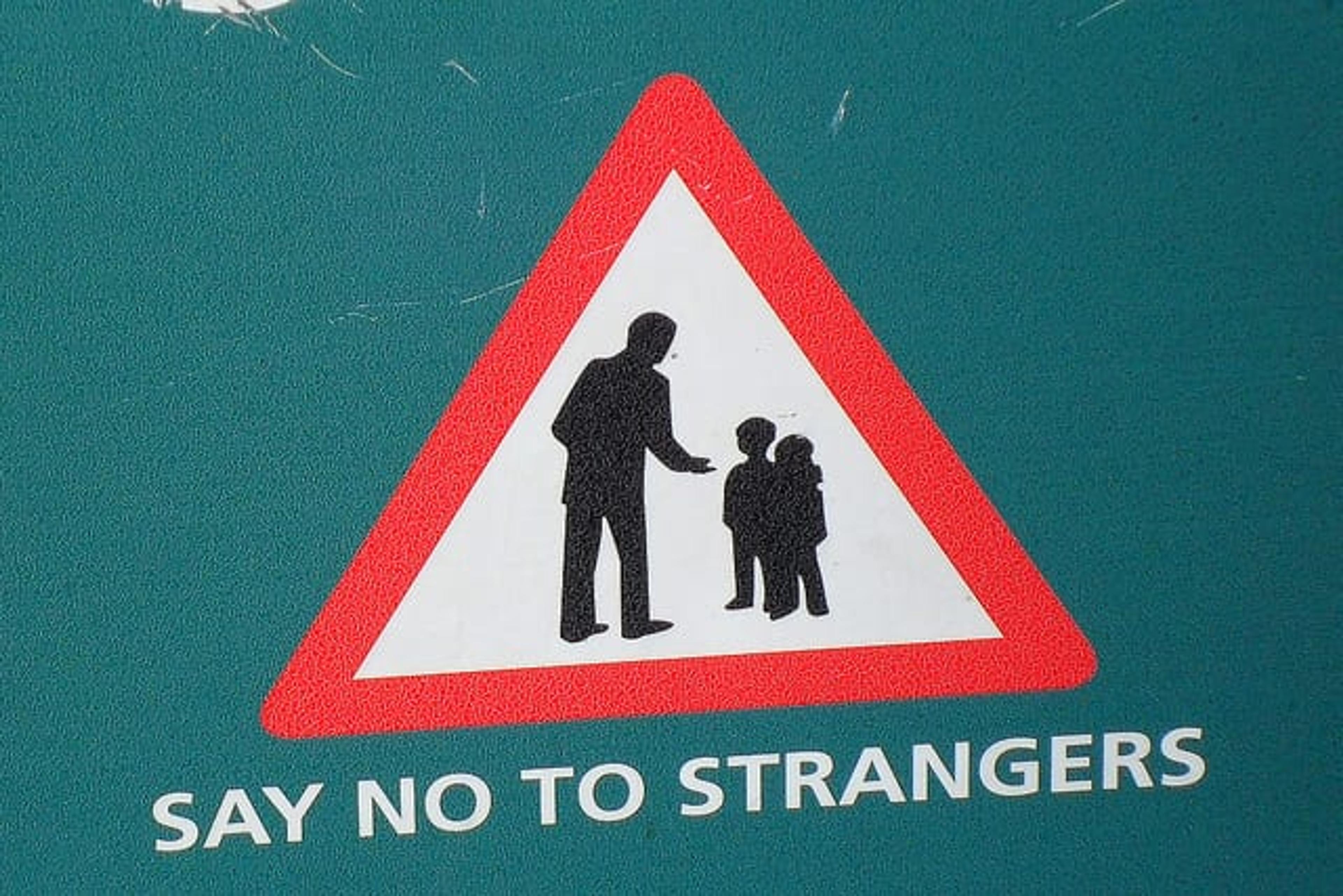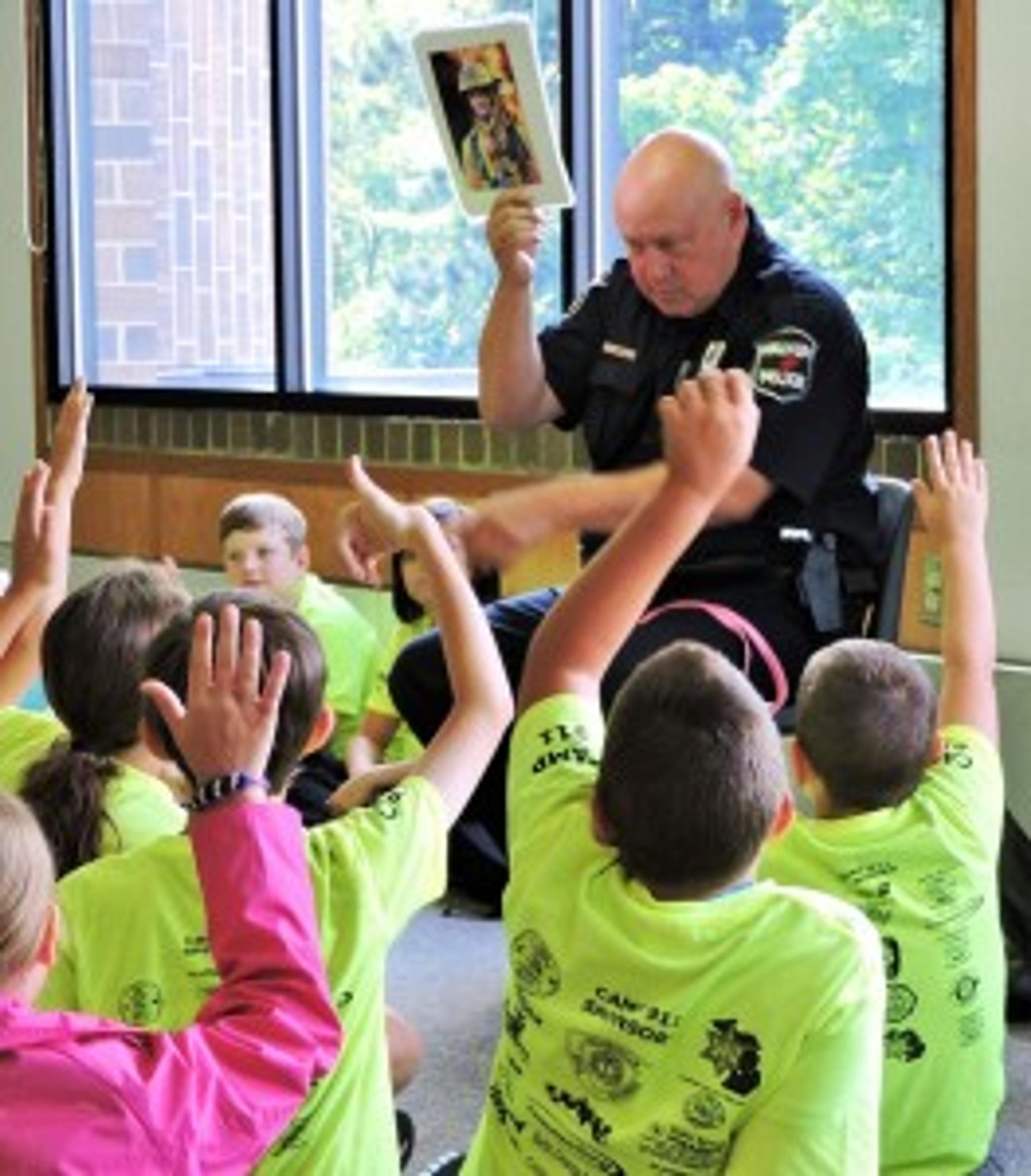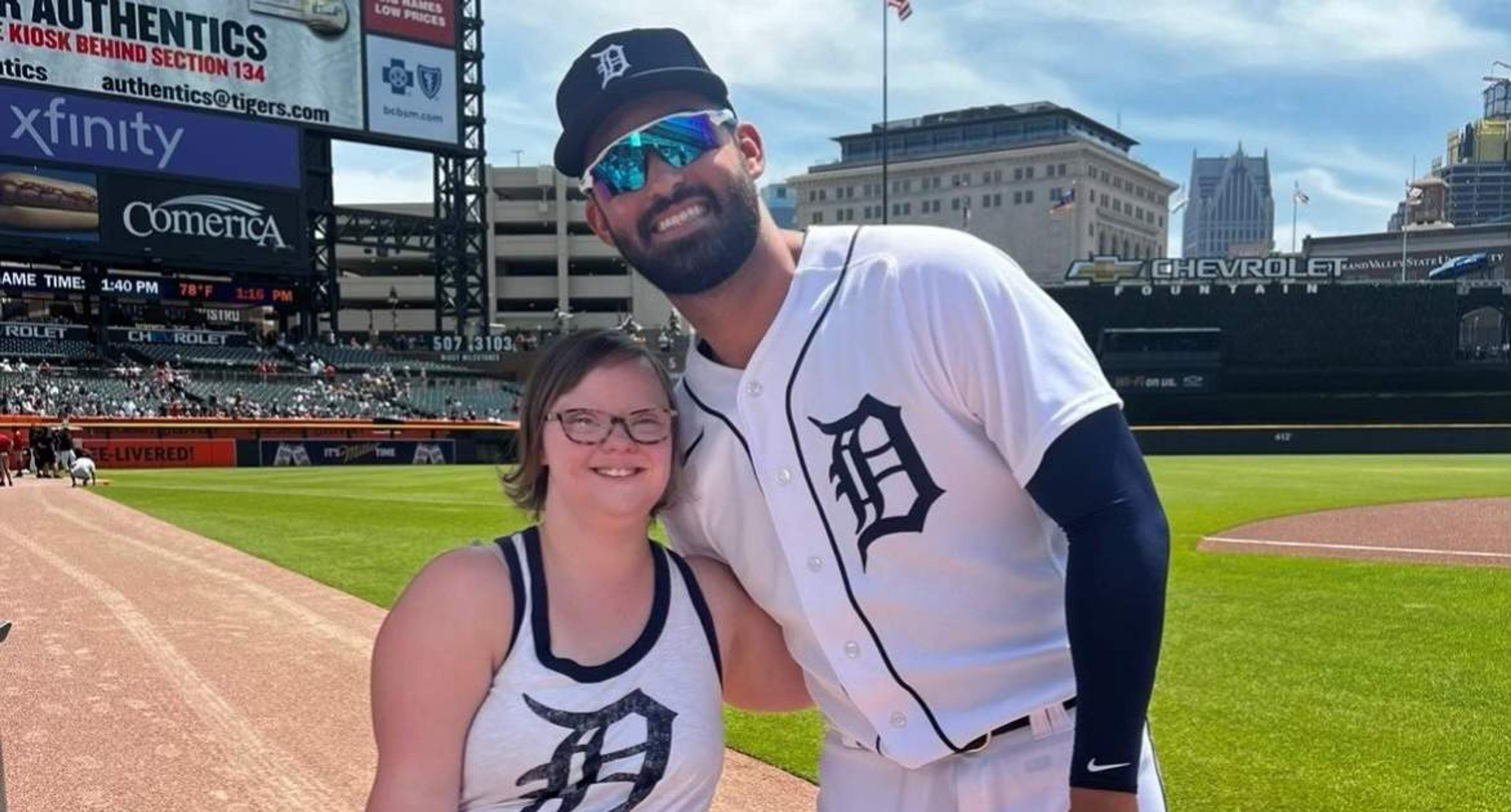Police Veteran Teaches Children to Say No to Strangers

Julie Bitely
| 3 min read

When it comes to strangers, can you tell the good from the bad?
When the question was posed to a group of 8- to 12-year-olds at a recent Life EMS Ambulance Camp 911, they correctly answered with a resounding chorus of “no”.
“The strangers we need to be concerned about are the bad strangers,” said Walker Police Department Officer Gil Redzinski.

Walker Police Department Officer Gil Redzinski quizzes kids at a recent Life EMS Ambulance Camp 911 event about strangers.
He said kids who are old enough to spend unsupervised time outside are more likely to be abducted than very small children, who typically have an adult with them. Redzinski shared the following tips about staying safe with strangers.
Resist the urge to be helpful. Talk to your kids about adults who approach them looking for help. Adults asking for directions or wanting help finding a lost dog should raise red flags.
“You have to be careful of the adults who come up to you and tell you stories,” Redzinski told campers.
There’s no reason for an adult to approach a child for help in those situations, he said, and kids should yell for help and run away.
“I don’t care who the stranger is,” he said.
A uniform doesn’t always equal safe. Redzinski shared a story about a man who purchased a firefighter’s uniform in an attempt to lure young women into his car.
“Almost every firefighter I know is a really good person, but the man who did this was not a good person,” he said.
The availability of cheap, realistic-looking uniforms means they can be easily purchased. Redzinski advised campers to look for one big clue to tell them if the person in uniform is the real deal.
“Look for the police car. Look for the fire truck,” he said.
Trust your instinct. Kids shouldn’t worry about being wrong about a stranger’s intent. If something about a situation doesn’t feel right, tell your kids to get away from the situation as quickly as possible and tell an adult they trust.
“The only person who can keep you safe is you,” Redzinski told campers.
According to the National Center for Missing & Exploited Children, about 200,000 kids in the U.S. are abducted every year by family members, while another 58,000 are abducted by nonfamily members. While those numbers sound high, the NCMEC reports that only around 100 kids every year are the victims of “stereotypical” kidnapping, characterized as being taken by someone the child doesn’t know or by an acquaintance. These types of kidnappings involve children being held overnight, ransom demands, harm to the child, or an intent to keep the child permanently. About half of “stereotypical” cases end with the return of the child.
Have a stranger safety talk with your kids. Let them know the majority of strangers have good intentions and that the likelihood of abduction is relatively low, but being prepared is necessary for kids starting to explore independently.
Photo credit: _chrisUK





